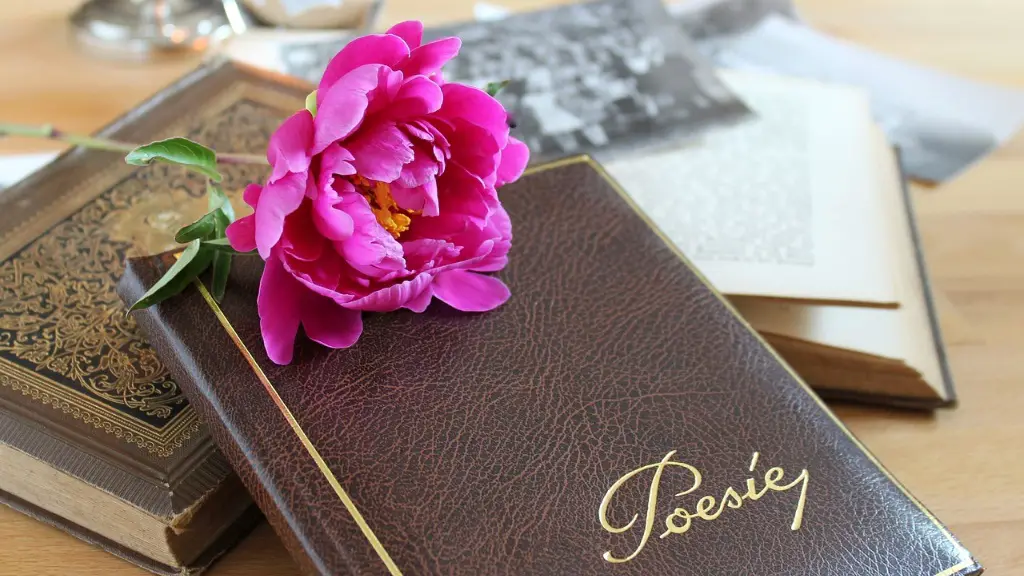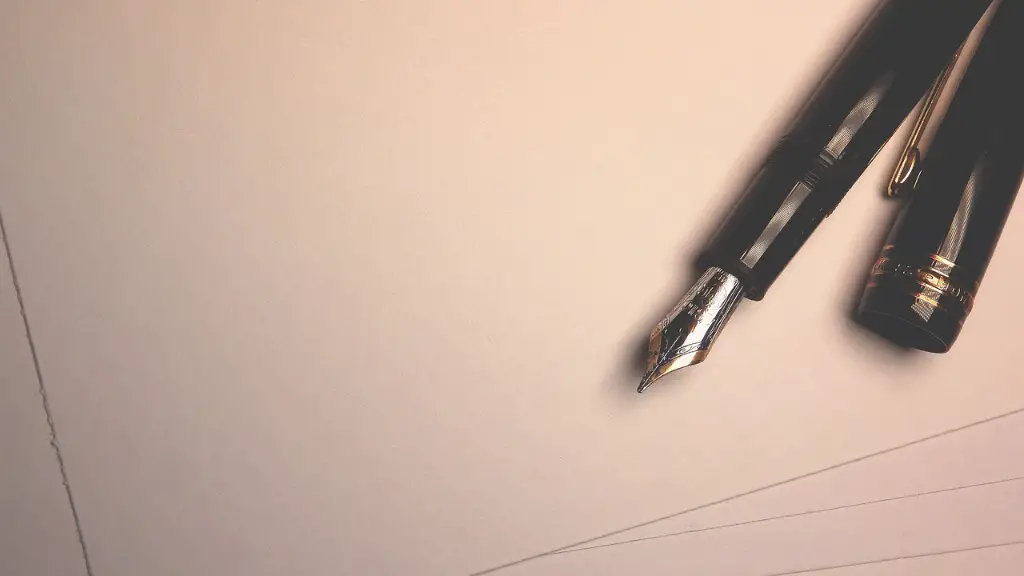Introduction to Poetry
Poetry is a form of literary art wherein the writer uses words to craft a compelling message. It is done using language that is both descriptive and expressive to evoke emotion, stir thoughts, and convey ideas in an inspiring and moving way. Poetry has been around for centuries, yet has found a way to remain relevant today – it is often used to voice emotions and convey experiences in our own lives.
The Power of Poetry
At the core of it, poetry stands for the deepest expressions of a person. It is a way to communicate and express feelings and emotions, to share experiences and innermost thoughts. Poetry has the power to transform and shift perspectives, inspiring people to take a different look at issues, making them think, as well as bringing joy and perspective.
Poets often use metaphors and symbolism to convey their message. The act of closely reading a poem can be quite insightful, providing an understanding that could not be expressed by spoken language. A great poem will make the reader feel something, even if the reader does not necessarily know what the poet is trying to say. This is the power of poetry.
Different Types of Poetry
Different types of poetry have different styles and effects. There is free verse, which is free of a particular rhyme scheme or meter. The structure is based on the poet’s own creative choice and this type of poetry is grounded in the emotion behind the words. It offers an insight into the poet’s feelings, which makes it beloved by many.
Another frequently used style is sonnets, which has a more specific format and structure. It is composed of fourteen lines that are structured in a particular way. Often, the content focuses on love and the beauty of life, which resonates with many people. There is also haikus, which is written in three lines of five, seven, and five syllables respectively. This style of poetry focuses on nature and animals and can help reduce stress.
Why Poetry
Poetry is therapeutic. It is an appropriate way to express and deal with difficult trauma and experiences. It is a way to confront and validate emotions that as human beings, we hold dear. Poetry also encourages openness, as it can reveal our hidden vulnerabilities and show us that we are not alone in our feelings.
At the same time, poetry is FUN and creative. It allows us to express our hopes, dreams and experiences while delving into the pleasure of playing with words.
Social Change Through Poetry
Poetry has the power to create social change. It serves to bring people together, break down barriers and stereotypes, and express the political, economic, and social issues that people are facing. It is through the power of words that people can get their voices heard and rally around to take action on the issues that matter most.
The Effect of Poetry
With poetry, we can tell stories that can influence and move people to action. Poetry has the potential to make people think, to challenge their existing beliefs and values. Many of the world’s most influential poets have done so, sparking conversations and encouraging actions in times of strife. Poetry can be used as a tool to spread awareness and to motivate people to take a stand for what is right.
Self-Reflection Through Poetry
Not only can poetry be used to effect others, it can also be a tool for self-reflection. It allows us to give voice to our thoughts and feelings in a way that often, cannot be expressed through spoken language. Writing poetry can provide another medium in which to gain insights, work through blocks and wounds, and focus on learning and transformation.
Politics in Poetry
Poetry has been and continues to be a significant part of politics. Political leaders and activists often use poetry to express their ideologies and rally people around their causes. It is through the power of words that revolutions have been started and social systems changed.
The Presence of Poetry in Culture
Poetry touches culture in more ways than one. Poetry is often used to comment on life, address current issues, and entertain. It is not uncommon for people to write about their own experiences and share them in forums, books, and movies. Poetry often reflects the beliefs, values, and culture of its time, allowing us to gain insight into the time period and what it means to be alive.
Concluding Thoughts
Poetry stands for much more than being able to craft words and create succinct phrases. Poetry has the power to evoke emotion, stir thoughts, and provide insight into ourselves and our lives. It is a method to create social change, to reflect on our experiences, and to feel connected to those around us. And, ultimately, the power of poetry is that it can be understood by people of all ages and backgrounds, crossing language barriers, uniting people in their shared humanity.


